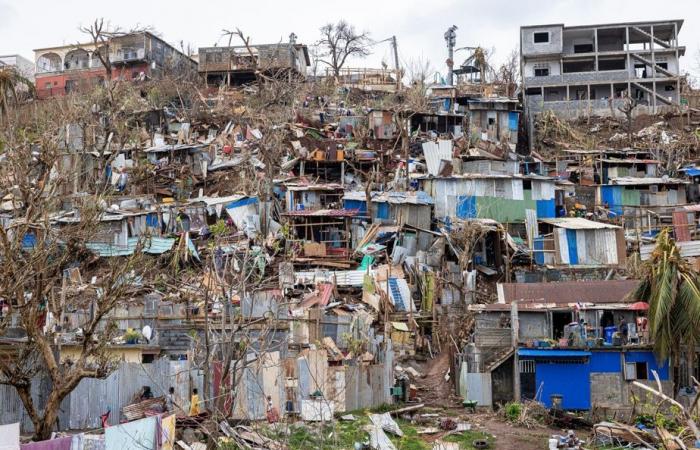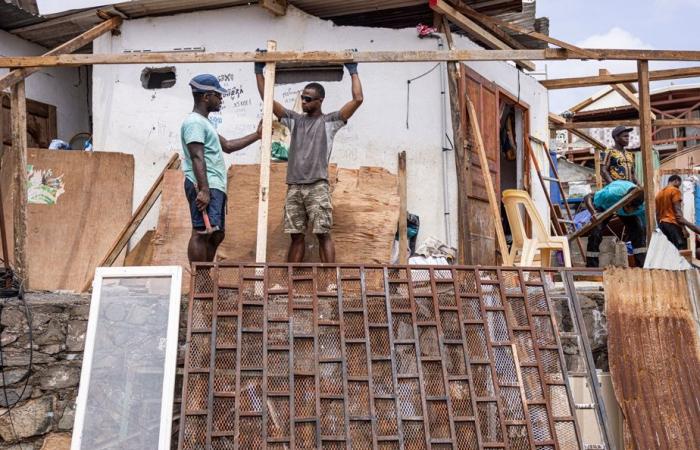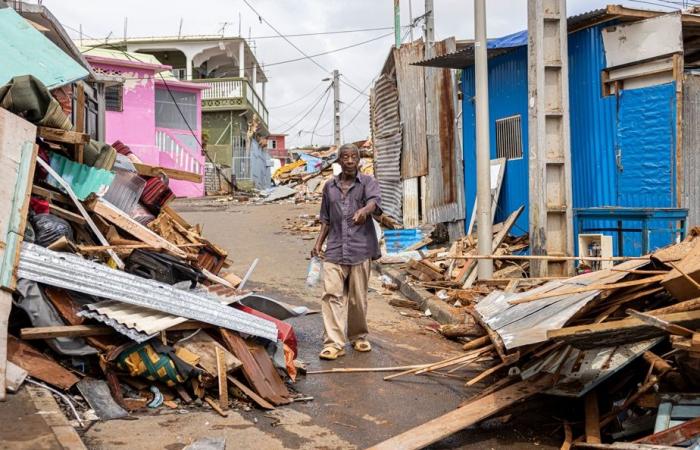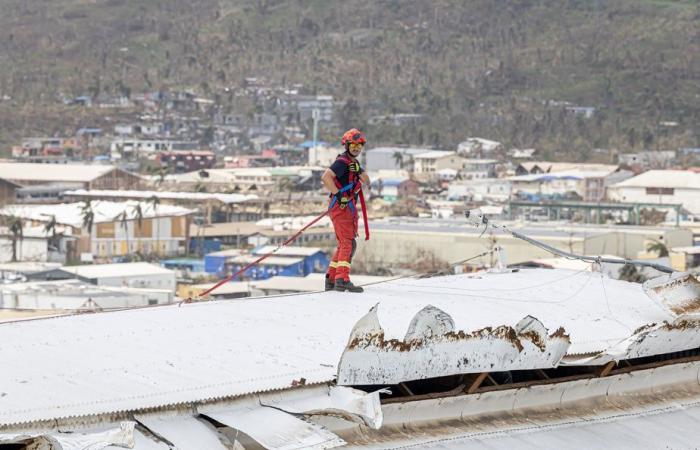(Mamoudzou) When the cyclone Desire ravaged Mayotte's fragile infrastructure, it also exposed deep tensions between the island's residents and its large migrant population.
Posted at 7:38 p.m.
Sam Mednick et Thomas Adamson
Associated Press
The thousands of people who entered the island illegally were hardest hit by the storm that ravaged the Indian Ocean archipelago, France's poorest territory. Authorities in Mayotte revealed that many migrants were avoiding emergency shelters for fear of deportation, making them and the precarious slums they inhabit even more vulnerable to devastation.
Meanwhile, anger simmered among residents, who accused the government of diverting the island's already scarce resources to migrants at their expense.
“We are the legitimate population of this island,” argued Amada Salime. Standing in the rubble of his house on Saturday, he added: “If the government provides aid – water, food or money to build houses – the Mahorais will not get any. Immigrants outnumber us and we will be left behind. »
PHOTO PATRICK MEINHARDT, AGENCE FRANCE-PRESSE
Workers repair a house in the town of Mamoudzou.
Mayotte, a French department located between Madagascar and the African continent, has 320,000 inhabitants. French authorities estimate that 100,000 migrants also live there, most of them having arrived from the neighboring Comoros Islands, just 70 kilometers away.
The island's fragile public services, designed for a much smaller population, are buckling under pressure. According to the National Institute of Statistics, around three-quarters of Mayotte's population live in poverty, with a median annual disposable income that is only one-eighth of that of the Paris region.
“Mayotte's problems cannot be solved without tackling illegal immigration,” French President Emmanuel Macron said during his visit this week, acknowledging the challenges posed by the country's rapid population growth. island. “Despite state investments, migratory pressure has caused everything to explode,” he added.
Fear of repression
The cyclone further compounded the island's problems after destroying homes, schools and infrastructure. Although the official death toll remains at 35, authorities say the estimates are likely grossly underestimated, with hundreds of deaths feared.
Migrant slums, known as “bangas,” have long been a problem in Mayotte. “Can we solve the slum problem today? The answer is no. We will take care of it during the stabilization and reconstruction phase,” Macron said.
For many migrants, like Nazca Antoiy, a Comorian who has lived in Mayotte for a decade, the cyclone has increased fears of displacement.
“I heard that people were ordered not to rebuild new houses. So we have to worry about it,” she said, reflecting widespread concern that authorities could use the disaster to accelerate slum demolitions.
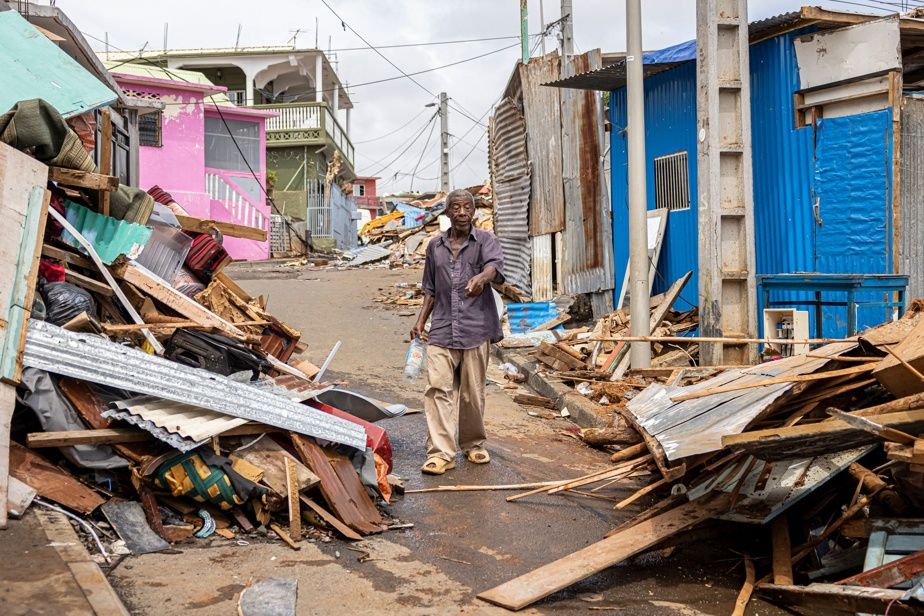
PHOTO PATRICK MEINHARDT, AGENCE FRANCE-PRESSE
A resident walks past debris on a street in the town of Mamoudzou
These concerns are not unfounded. Last year, France launched Operation Wuambushu, a controversial campaign to demolish slums and expel migrants who entered illegally. Macron hinted that similar policies could resume, but stressed that reconstruction efforts would take priority.
The storm left many residents struggling to meet their basic needs.
A hotspot for migrants
“I can't take it anymore. Just having water is complicated,” lamented Fatima, a 46-year-old mother of five whose family has been deprived of drinking water since the storm ravaged Mayotte last weekend. Fatima, who only gave her first name because her family is known locally, also said she felt the island could not accommodate the current population, let alone more.
Most migrants have family ties to Mayotte and speak the same language. They are looking for a better life on the island rather than trying to reach the European continent.
Mayotte's geopolitical position has long made it a hot spot for migrants. While the island voted to remain French in referendums held in 1974 and 1976, neighboring Comoros has never recognized its sovereignty and continues to claim the archipelago as its territory.
This unresolved conflict has fueled waves of migration, with thousands of people risking perilous sea crossings each year.
The outgoing French Interior Minister, Bruno Retailleau, recently relaunched the debate, describing the situation in Mayotte as a “war” earlier this week. Mr Retailleau proposed tougher measures, including the use of drones and naval patrols to block new arrivals. “We need to be much tougher with the Comoros,” he said, accusing the neighboring government of allowing migrants to leave its shores unchecked.
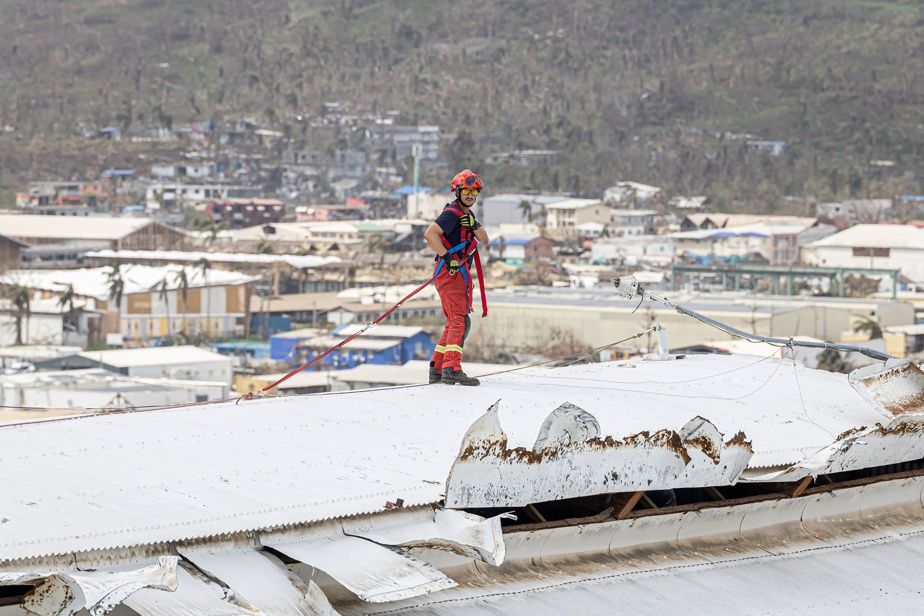
PHOTO PATRICK MEINHARDT, AGENCE FRANCE-PRESSE
A French firefighter repairs the roof of the Mayotte central hospital in the town of Mamoudzou.
The outgoing minister's calls to “change the rules” include proposals to restrict birthright citizenship in Mayotte, a policy already strengthened in 2018 to require proof that at least one parent had been a legal resident for more than three months. Critics say these measures only deepen divisions in Mayotte without addressing the root causes of migration.
A 2023 parliamentary report cited in French media warned that the island was a “time bomb”, while suggesting redistributing part of Mayotte's migrant population to mainland France — a proposal unlikely to benefit from broad support.
Adamson reported from Paris.

